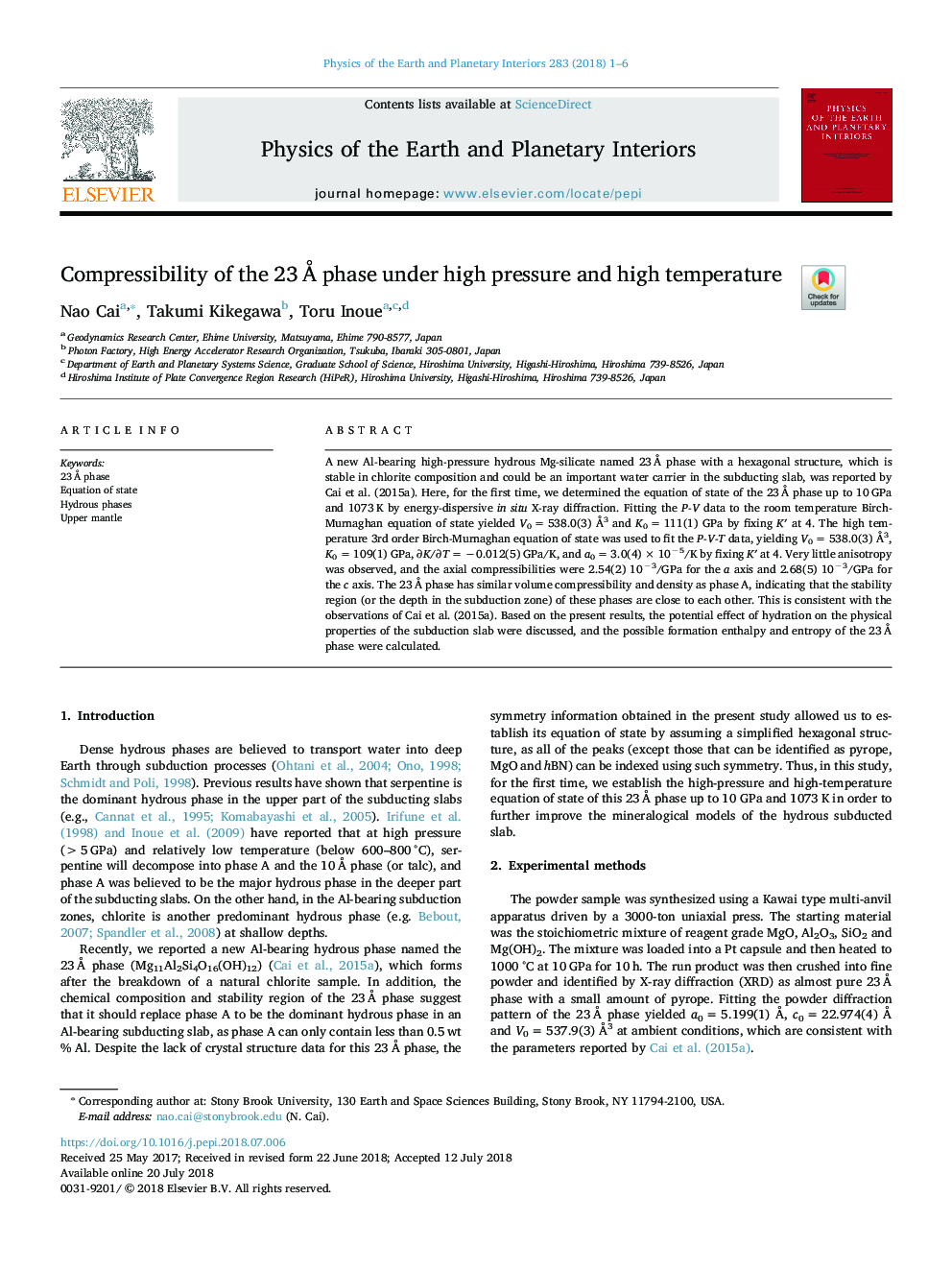| Article ID | Journal | Published Year | Pages | File Type |
|---|---|---|---|---|
| 8915648 | Physics of the Earth and Planetary Interiors | 2018 | 6 Pages |
Abstract
A new Al-bearing high-pressure hydrous Mg-silicate named 23â¯Ã
phase with a hexagonal structure, which is stable in chlorite composition and could be an important water carrier in the subducting slab, was reported by Cai et al. (2015a). Here, for the first time, we determined the equation of state of the 23â¯Ã
phase up to 10â¯GPa and 1073â¯K by energy-dispersive in situ X-ray diffraction. Fitting the P-V data to the room temperature Birch-Murnaghan equation of state yielded V0â¯=â¯538.0(3) Ã
3 and K0â¯=â¯111(1) GPa by fixing Kâ² at 4. The high temperature 3rd order Birch-Murnaghan equation of state was used to fit the P-V-T data, yielding V0â¯=â¯538.0(3) Ã
3, K0â¯=â¯109(1) GPa, âK/âTâ¯=â¯â0.012(5) GPa/K, and a0â¯=â¯3.0(4)â¯Ãâ¯10â5/K by fixing Kâ² at 4. Very little anisotropy was observed, and the axial compressibilities were 2.54(2) 10â3/GPa for the a axis and 2.68(5) 10â3/GPa for the c axis. The 23â¯Ã
phase has similar volume compressibility and density as phase A, indicating that the stability region (or the depth in the subduction zone) of these phases are close to each other. This is consistent with the observations of Cai et al. (2015a). Based on the present results, the potential effect of hydration on the physical properties of the subduction slab were discussed, and the possible formation enthalpy and entropy of the 23â¯Ã
phase were calculated.
Related Topics
Physical Sciences and Engineering
Earth and Planetary Sciences
Geophysics
Authors
Nao Cai, Takumi Kikegawa, Toru Inoue,
